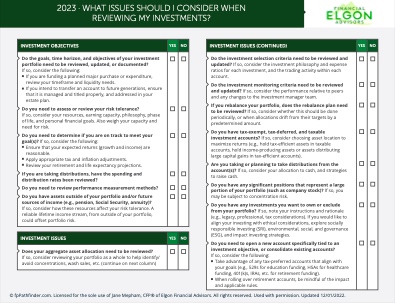Photo by Vasily Koloda on Unsplash
If I’m on an H-1B visa, can I open a 529 college savings account for my kids?. I’ve heard this question so many times in the past couple years, so I’m answering it in a blog post.
Before I do, if you are new in the country, and you are not sure how to go about building your credit, start with this post: How To Build US Credit as a New Immigrant
College Education and the Immigrant Community
Higher education is a big deal for the immigrant community in the US whether they are here permanently or whether on work visas like the H-1B, L or TN visas.
A recent article in the New York Times reports that US born children of immigrants or immigrant students accounted for close to 60% of the university enrollment growth since 2000.
In 2019-2020, the US had over 1 million international students according to the Open Doors Report. It remains a top destination for foreign students. The country also has two of the top schools in the world – Harvard University and MIT.
This speaks to the US academic excellence and explains part of the attraction for the rest of the world.
The Cost of College Education in the US
It is also the most expensive country to study in when you add up the tuition fees and living costs and has the most expensive colleges in the world.
The average cost for Harvey Mudd College (referenced above) is around $70,000 which seems crazy compared to other countries like Denmark where the average tuition is zero.
Other colleges in the US maybe a little cheaper than this, but the cost is still something one has to plan for.
Again, this goes to show how much the rest of the world values the education and how much families are willing to pay to give their kids the best. It’s a trend carried forward by those who come here as students and end up staying on work visas and eventually become citizens.
It raises the whole question of how families here and overseas should be selecting the college to attend, as well as how they are going to pay for them.
529 College Savings Plans
The government has provided some options for saving for college, with the most popular one being a 529 college savings plan.
It’s a savings plan that allows earnings to grow tax free from federal income tax, and when used for qualified education expenses, the money comes out tax-free.
Other benefits of the 529 college savings plan includes:-
- The cost to start an account is zero, especially compared to other places.
- Full control for the owner.
- Some plans offer state tax-breaks.
- Others (friends, relatives etc.) can contribute to the same account.
- Very high lifetime contribution limits – some states will go up to $520,000.
- Contribution are part of the annual gift tax exclusion ($15,000 per person in 2020)
- In addition to college expenses, the same account can be used for elementary, middle, and high school tuition.
- Can be used in some colleges abroad. This tool will show you the list of foreign colleges that are eligible for the 529 benefit.
Citizens and permanent residents are able to open the 529 college savings account with no issues. What about those on work visas?
Work Visas Like H-1B and 529 Savings Accounts
The most popular visas in this category are H-1B, O, L and to a lesser extent TN.
The individual on the visa is allowed to work and live in the US and have their family with them, but the family is on a dependent visa. For example, the family of an H-1B visa holder will be on an H-4 visa which allows them to attend school but not work.
A lot of the H-1B visa holders have a legal path to change their status to become a permanent resident (green card), but this process can take years depending on the type of application and their country of origin.
In the meantime, they want to keep planning for their children’s future including saving for their college education.
There are other options in this space (paying for college), and there are other specific issues to consider, but to answer the question “Can an H-1B visa holder open a 529 college savings account?”, Let’s carefully consider the other requirements for opening the account.
- A Social Security number or a US Tax ID Number for the account holder.
- A Social Security number or a US Tax ID Number for the beneficiary – if the kids are not citizens or permanent resident, the account holder can be the beneficiary and can change this in future.
- A permanent US mailing address
- State residency rules – Since 529 plans are state sponsored, every state has their own plan, and most of them will allow out of state residents access, but there are six states whose plans are only available to in-state residents.
Based on the requirements above the H-1B visa holder is able to open a 529 college savings account.
What else Should the H-1B Visa Holder Consider Before Opening the 529 Savings Account?
A couple questions to help in this regard.
- Every financial decision for an immigrant on a visa must start with the question “How long are you planning on being in the country?.”
If you are going to be here for only a short period of time and not planning on pursuing citizenship – the 529 plan may not be the best option for you.
- 529 college savings accounts are not considered tax-advantaged accounts outside the US. There are no tax treaties between the US and other foreign country recognizing the tax-advantaged status of 529 savings plans. So, any gains in the accounts could be subject to taxes and penalties if withdrawn for anything other than college or other qualified expenses.
- If going down the green card / citizenship path, carefully consider the timing. Typically, dependents (beneficiaries) won’t get social security numbers until the 1-485 AOS (Adjustment of Status) and EAD (Employment Authorization Document) stage.
- The plan’s beneficiary can be changed at any point, but the beneficiary must be a US Citizen or resident with a valid Social Security Number or an ITIN (Individual Taxpayer Identification Number).
- Where are they planning on using that money? What colleges are they targeting?
- Outside of a few international schools, where the 529 plans can be used, withdrawing the money to be used in other non-US schools is considered a non-qualified distribution and will incur ordinary income taxes plus a 10% tax penalty.
I just finished writing a post on other college saving options for foreign-born kids if on H-1B visa, if they don’t have social security numbers. It’s worth a read.
529 plans are one of the most powerful tools for those looking to save for college. If used carefully they can go along way in helping immigrant families achieve their version of the American dream.
In future posts, we’ll discuss how to pick the right plan, how much to invest in the plan, and how to ensure, it fits into your overall investment strategy.
If you would like to discuss the above or any other financial issue, please schedule a free consultation.
To continue being a part of the conversation on financial issues that affects foreign-born families whether new or long term residents subscribe to Elgon’s blog posts by email here, sign up here.
Disclaimer: This article is provided for general information and illustration purposes only. Nothing contained in the material constitutes tax advice, a recommendation for the purchase or sale of any security, investment advisory services, or legal advice. I encourage you to consult a financial planner, accountant, and/or legal counsel for advice specific to your situation. Reproduction of this material is prohibited without written permission from Jane Mepham and all rights are reserved. Read the full disclaimer here.

Recent Articles

H-1B Visa New Job? How to Succeed Financially
When you start a new job on a work visa, like H-1B, there are some key things you should do to ensure financial success. In this post, I’m providing a free resource (eBook) that addresses the top things to do to ensure a great financial start in your new job.

Roth IRA Demystified – Answering The Most Common Questions On The Account
Everybody seems to be aware of Roth IRA accounts, but not always sure about some of the minute details. In this post, I answer some of the questions I get from clients and prospects on the Roth IRA

Can You Name Overseas Guardians For Your Minor Kids? (Updated)
The courts have a plan for taking care of your minor kids if you pass away, become incapacitated or get deported from the US.
How do you ensure that it you can have overseas guardianship to protect your kids?


